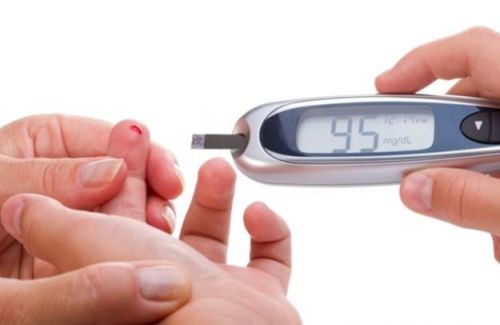Hyperglycemia: Causes and remedies to lower
Hyperglycemia, in general, is a disorder that associate with diabetes, but not always this metabolic disorder is the cause of high blood glucose levels.
Glucose is a substance that we obtain through the consumption of many foods, especially complex carbohydrates, such as bread, fruit or paw. Glucose is essential for our body, and that gives us the energy we need for the operation, for example, the muscles and the brain.
The sugar metabolism is controlled by two hormones, insulin produced by the pancreas, glucagon, whose effect is to lower levels when they are too high (hypoglycemic) or warn when sugar is too low and the body begins to suffer (hyperglycaemic). Logically, it is important not to produce imbalances of glucose levels in the body. For this it is convenient performed blood tests regularly to control blood glucose, especially if we are near the limits.
Table of Contents
Hyperglycemia: Values of reference and analysis that do
What are the references to see if our blood sugar is too high? Firstly, it should be noted that the blood test must be done first thing in the morning, and fasting. Only if there is suspicion of diabetes will be carried out more tests, even are controlled levels after a meal and at night. The limit value is fixed at 126 mg/dl in blood. If we exceed this level, surely this is a clear risk of diabetes. Even the immediately lower level, between 110 and 126 mg/dl, also should be checked. In these cases, the doctor may recommend two other tests for monitoring blood glucose, the glycemic load curve and the curve of the insulin that can be performed simultaneously.
The first sets the levels of glucose in blood in fasting and after a meal, such as breakfast or lunch, or after the patient has taken 75 grams of sugars. If the blood glucose level, two hours after eating, exceeds 200 mg/dl, you can talk about diabetes; if it is between 140 and 200 mg/dl in fasting, should take extra precautions and control values. Insulin curve, in turn, establishes the pancreatic function in insulin production. Let’s look at the possible causes of hyperglycemia.
Hyperglycemia: Causes
The most likely cause, and frequent, hyperglycemia is associated with symptoms such as weight loss, excessive urine production (polyuria), thirst and skin disorders such as itching and dermatitis. Diabetes can be of three types:
- Type 1 diabetes: It is one of the most severe forms of diabetes, as it involves insulin injections daily and follow a specific diet.
- The type 2 diabetes is directly related to lifestyle, overweight and slowing down of the metabolism.
- The gestational diabetes occurs during pregnancy and usually, if kept under control, resolved spontaneously after the baby is born.
Other causes that may be behind the high levels of blood sugar are:
- The stress. In this case, hyperglycemia is caused by a mental or physical impairment, such as problems of infection and even convalescence after a heart attack or stroke.
- The thyroid disorders.
- Use of certain medications, such as beta blockers and protease inhibitors.
Hyperglycemia remedies
In order to reduce the glucose levels in the blood have to check the diet. For people with diabetes, or are at the limit, it is essential to modify the eating habits to restore the balance of blood sugar. A diet that will help us to stimulate the metabolism of sugars. For example, it is advised to take yogurt and skim milk (unsweetened, of course), probiotics, grains (bread and pasta too), seeds, legumes (chickpeas, lentils, beans …), vegetables (artichokes, garlic, onions …) fish and lean meats.
Among fruits, the most recommended are pears, strawberries, plums and apples. Logically, avoid foods such as sugar, honey, sugar drinks and alcohol. To maintain the level of sugar in the blood at optimal levels, or to lower it if it starts to rise, sport is also very beneficial. Tips: walk 15 minutes after eating. A sedentary lifestyle is one of the greatest enemies of our health and wellbeing.
